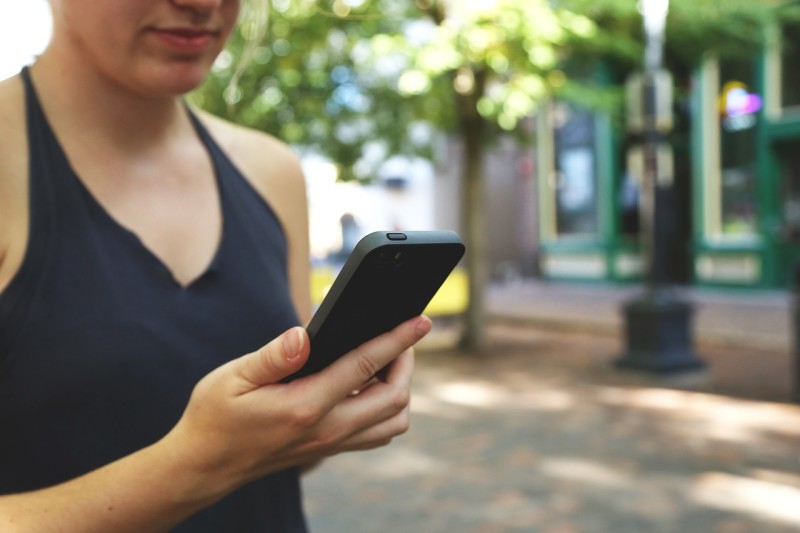Even as one of the company’s executives, Dr. Tom Insel, acknowledged to STAT that the app isn’t perfect, the company’s CEO emphasized that Mindstrong could provide unprecedented insight into conditions like depression.
Mindstrong is not alone in pushing the frontiers of smartphone-based digital health. Many companies use so-called digital phenotyping, collecting scientific data on a person’s digital life, to gain insights into his or her physical or mental health.
The company’s app collects information about how people are typing and runs it through a machine learning algorithm to determine which data can predict their emotional state. Mindstrong has already used it in controlled clinical settings and trials — including one run by a company developing new antidepressants and another done in a ketamine clinic. The app is available in Apple’s app store, but requires a participant code to access it.
“We’ve done the validation work against the gold-standard clinical tests for depression, for anxiety, for cognitive decline, whether it’s memory or executive function,” said Dr. Paul Dagum, the company’s founder. “We’re confident, we’re already seeing some really exciting results.”
In the last year, Mindstrong’s footprint and reach have already grown exponentially. The Palo Alto-based company’s workforce has doubled to 42 employees and it made a sizable gift to Harvard’s school of public health. In February, it launched a partnership with Takeda to develop new biomarkers that will be able to aid the pharmaceutical giant’s clinical trials for depression treatments.
The idea is to use that data to establish a “normal” pattern — so it can be compared against someone’s typing habits on any given day. If the habits look off, slower or more agitated than normal, the app can alert a health care provider.
Abnormal patterns, Mindstrong says, might show up if a person is more depressed or anxious, or if just about anything else about their mental health changes. When asked which disorders Mindstrong might be able to detect, Dagum replied, “all of them.” (Dagum, a data scientist and physician, founded the company in 2017 with Rick Klausner, the founder and director of CAR-T pioneer Juno Therapeutics and Grail, a liquid biopsy company.)
Mindstrong officials told STAT that among their most encouraging results is that its app can even predict how a person will feel next week, or at least how a person will perform on the Hamilton Rating Scale for depression — kind of like a weather app for your mood.
The data behind this claim is being published soon, said Insel, who is the former head of the National Institute of Mental Health and came to the company in 2017 after a short stint at Verily.
The app can detect a seven-point change on the Hamilton scale, Insel said. That kind of difference could indicate a patient who is not normally depressed now shows signs of mild or moderate depression, or that a person with moderate depression is now showing signs of a very severe condition.
“For a clinician and for someone taking care of a patient, knowing that, it could be very, very powerful,” Dagum said.
The company’s momentum has taken it to the cusp of a real-world deployment in California. About 15 counties — including the most populous county in the United States, Los Angeles County — will be spending about $60 million over the next four years to bring companies like Mindstrong and other apps into their health care system.
These counties hope apps will help them get better services to people with mental illnesses like depression, schizophrenia, bipolar disorder, and post-traumatic stress disorder.
The Mindstrong program itself is limited: Patients can choose voluntarily whether to use the app, which will be free to them, and that decision won’t affect the rest of the mental health services they can access.
Lack of Public Data
So far, the Mindstrong app has only been used in controlled clinical settings and trials — including one run by a company developing new antidepressants and another done in a ketamine clinic. The company has also claimed that a “nationwide employer” and private substance abuse clinics in D.C. are using the app.
But other than the change on the Hamilton scale — which hasn’t yet gone through peer review and was disclosed to STAT in an interview — almost no data about how well Mindstrong’s technology works is available to independent observers.
The company’s website describes five completed clinical trials, but it has not yet published the results of any. Only a handful of other published works — all from the last year — have hinted at how well it works or its scope with data to back up the claims.
The company published a 27-person pilot study in the journal npj Digital Medicine earlier this year. Dagum is also an author on a poster presentation given at the American College of Neuropsychopharmacology’s 2017 conference, another poster that reported results from a very wide variety of digital phenotyping techniques — not just typing — and a paper describing a clinical trial protocol — not results.
As Mindstrong steps toward a wider rollout, the scientific studies behind its claims will matter. Federal regulators, for one, have cracked down on commercial appsthat misleadingly reference a study’s conclusions to market their app.
Based on her own research, at least one expert in digital health and mood said she’s skeptical that Mindstrong can, in a general population, work as well as the company claims. MIT’s Picard said that while there are ways to predict or detect mood changes, you usually need more than just a single type of data to do so.
“I’m suspicious that a single modality like typing is going to be sufficient. It would be like saying there’s a single question [on a screening questionnaire] that a doctor could be using,” said Picard, who is also CEO of a company that works on digital phenotyping, like Mindstrong does.
“My guess is that their specificity to depression is going to be relatively low,” Picard said.
